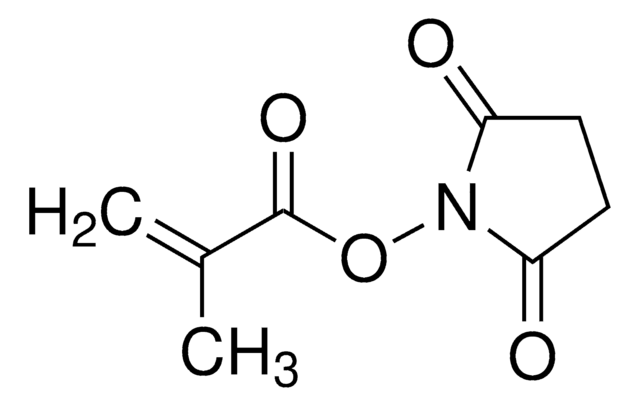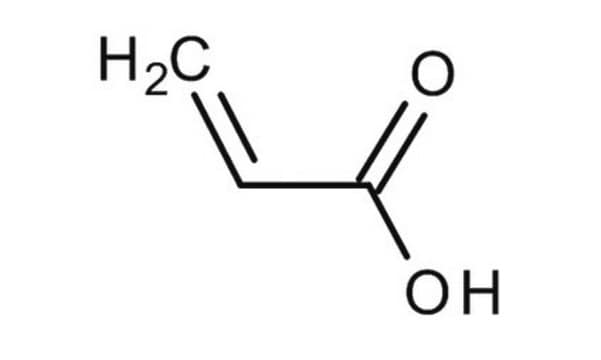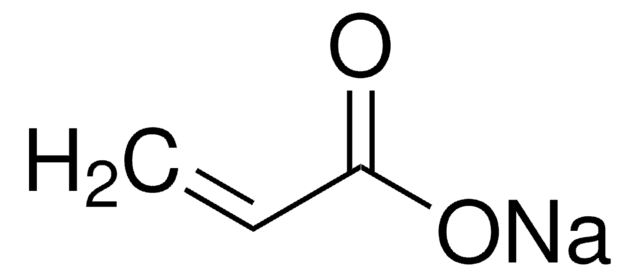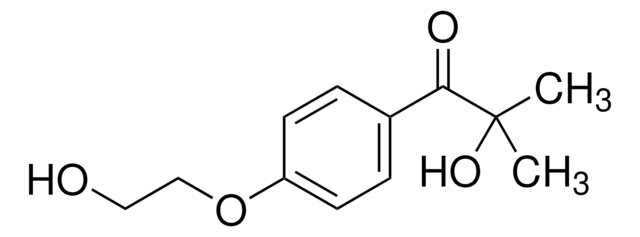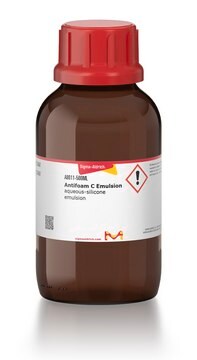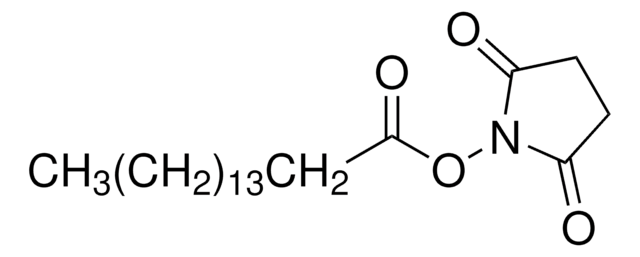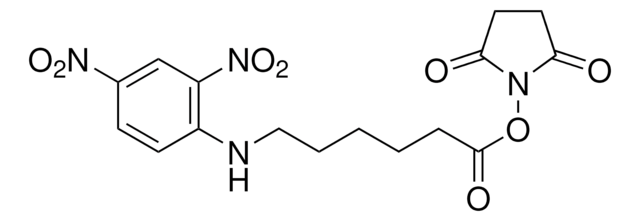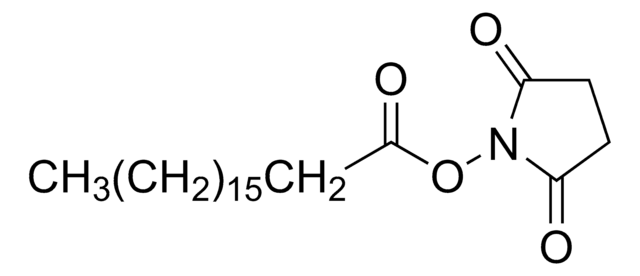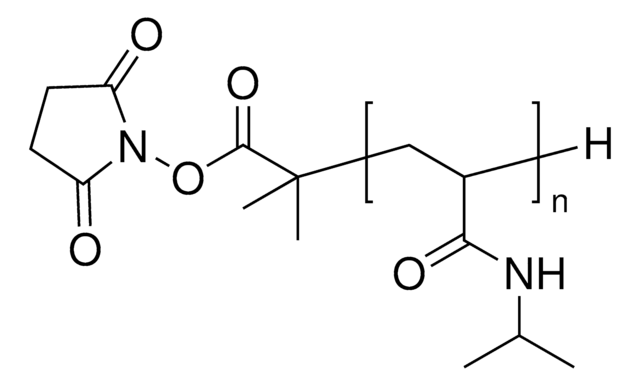A8060
Acrylic acid N-hydroxysuccinimide ester
≥90%, for peptide synthesis
Synonym(s):
N-Acryloxysuccinimide
Sign Into View Organizational & Contract Pricing
All Photos(2)
About This Item
Empirical Formula (Hill Notation):
C7H7NO4
CAS Number:
Molecular Weight:
169.13
MDL number:
UNSPSC Code:
12352005
PubChem Substance ID:
NACRES:
NA.22
Recommended Products
Product Name
Acrylic acid N-hydroxysuccinimide ester, ≥90%
Quality Level
assay
≥90%
form
powder
application(s)
peptide synthesis
storage temp.
2-8°C
SMILES string
C=CC(=O)ON1C(=O)CCC1=O
InChI
1S/C7H7NO4/c1-2-7(11)12-8-5(9)3-4-6(8)10/h2H,1,3-4H2
InChI key
YXMISKNUHHOXFT-UHFFFAOYSA-N
Looking for similar products? Visit Product Comparison Guide
Application
Acrylic acid N-hydroxysuccinimide ester (NAS) is a general acrylating agent that is used in the synthesis of:
- Acrylated hyaluronic acid (HA) hydrogel for bone regeneration applications.
- Injectable, biodegradable, and thermosensitive copolymers for tissue engineering.
- Imidazole-based biocompatible, aqueous quantum dots (QDs).
signalword
Warning
hcodes
Hazard Classifications
Acute Tox. 4 Oral - Eye Irrit. 2
Storage Class
11 - Combustible Solids
wgk_germany
WGK 1
flash_point_f
Not applicable
flash_point_c
Not applicable
Choose from one of the most recent versions:
Already Own This Product?
Find documentation for the products that you have recently purchased in the Document Library.
Customers Also Viewed
Farshad Oveissi et al.
Biomaterials science, 7(3), 926-937 (2018-12-07)
Novel hydrogels with tunable mechanical properties similar to human soft tissue have increasing applications in biomedicine, soft robotics, and biocompatible electronics. However, most of these materials require multiple-step fabrication, are not robust, and compromise bioactivity. Thus, aiming to address these
Raja Zaidatul Akhmar Raja Jamaluddin et al.
Sensors (Basel, Switzerland), 18(5) (2018-04-28)
A new biosensor for the analysis of nitrite in food was developed based on hemoglobin (Hb) covalently immobilized on the succinimide functionalized poly(n-butyl acrylate)-graphene [poly(nBA)-rGO] composite film deposited on a carbon-paste screen-printed electrode (SPE). The immobilized Hb on the poly(nBA)-rGO
Compact biocompatible quantum dots via RAFT-mediated synthesis of imidazole-based random copolymer ligand.
Liu W, et al.
Journal of the American Chemical Society, 132(2), 472-483 (2009)
Bone regeneration using hyaluronic acid-based hydrogel with bone morphogenic protein-2 and human mesenchymal stem cells.
Kim J, et al.
Biomaterials, 28(10), 1830-1837 (2007)
L Przybyla et al.
Methods (San Diego, Calif.), 94, 101-113 (2015-09-08)
The way cells are organized within a tissue dictates how they sense and respond to extracellular signals, as cues are received and interpreted based on expression and organization of receptors, downstream signaling proteins, and transcription factors. Part of this microenvironmental
Our team of scientists has experience in all areas of research including Life Science, Material Science, Chemical Synthesis, Chromatography, Analytical and many others.
Contact Technical Service

